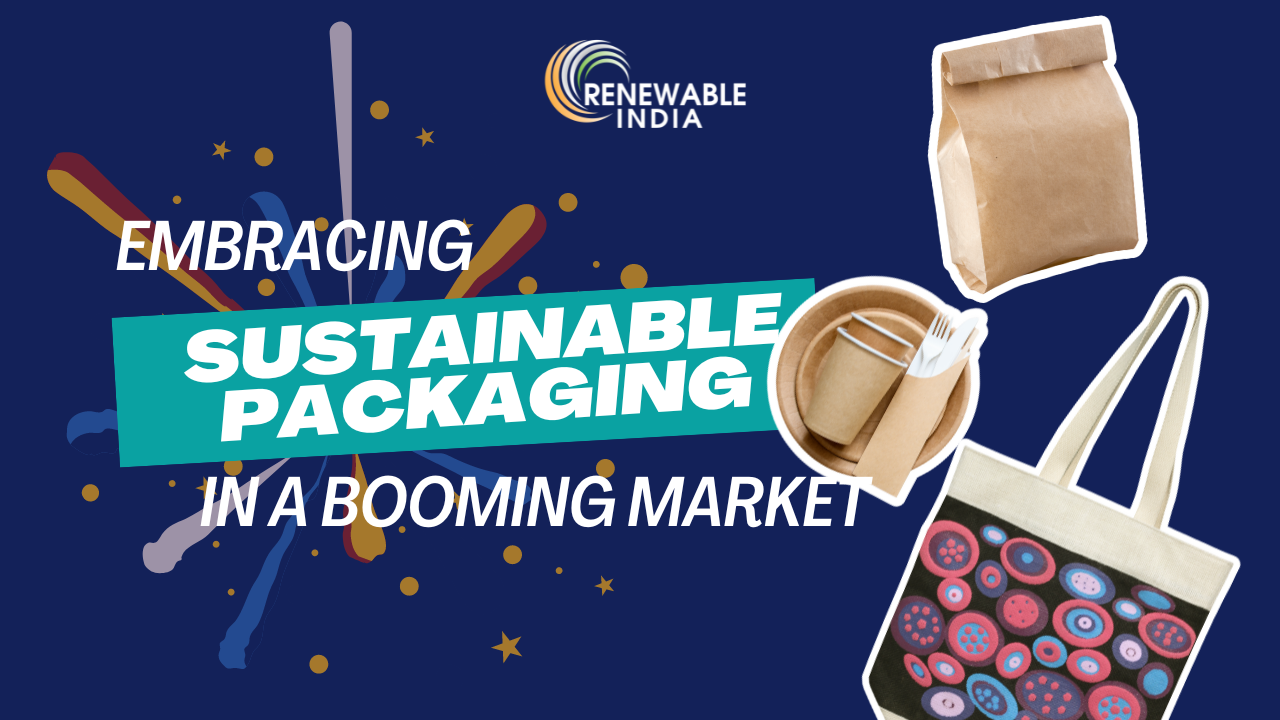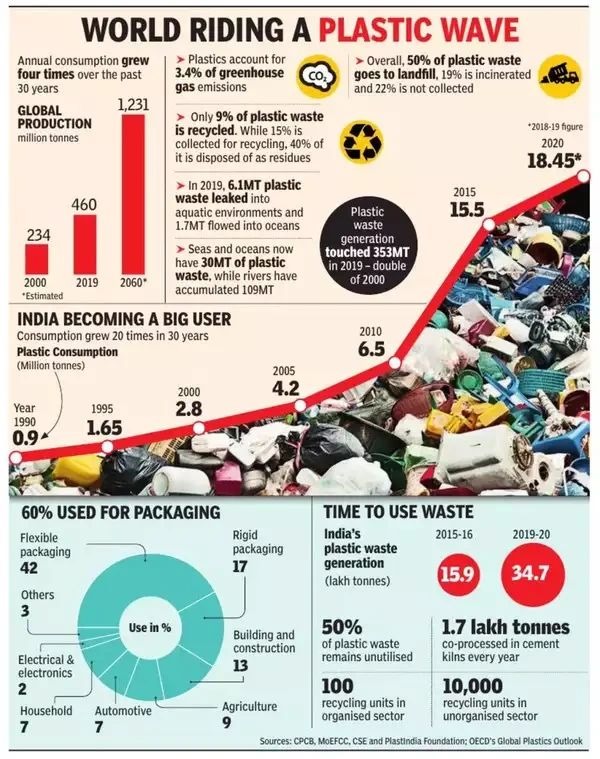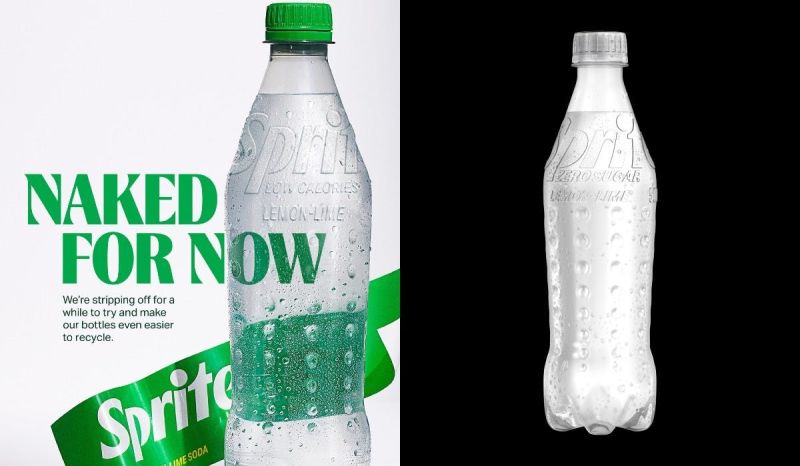
India, the land of vibrant colors and diverse flavors, is also facing a packaging conundrum. With a booming economy and a growing population, the demand for packaged goods is skyrocketing, but so is the environmental footprint. But amidst the plastic mountains, a green wave is rising. Sustainable packaging solutions are making their mark, driven by a confluence of factors:
This isn’t just a fad; it’s a necessity. With the right infrastructure, policy support, and consumer awareness, India can pack a powerful punch in the sustainable packaging revolution.

Conventional packaging materials have a major negative impact on the environment since they are usually made of non-renewable resources like metals and plastics. Large volumes of waste are produced, pollution is released into the environment, and deforestation is caused by the extraction, manufacture, and disposal of these materials.
Particularly plastic has come to represent the environmental catastrophe with 3.4 million tonnes/day (CPCB, 2022). Plastic generated in India; single-use plastics contaminate waterways, endanger wildlife, and take millennia to break down.
Did you know conventional packaging isn’t just an eyesore; it’s a climate heavyweight? Producing a single plastic bottle emits enough greenhouse gas to inflate 5 balloons!
Every stage, from extraction to disposal, spews pollutants. Sustainable Packaging alternatives offer a knockout punch, reducing environmental impact throughout their lifecycle. Let’s fight climate change, one package at a time!
The capacity of sustainable packaging to ease the shift to a circular economy is one of its main benefits. In contrast to the “take, make, dispose” linear paradigm, a circular economy places a strong emphasis on material reduction, reuse, and recycling.
Sustainable packaging reduces the quantity of garbage that ends up in landfills by being recyclable, compostable, or biodegradable. Businesses help to create a more sustainable and effective system by closing the loop on packaging materials.
Consumer attitudes are evolving, and a growing number of individuals are making environmentally conscious choices in their purchasing decisions. A study by Nielsen found that 73% of consumers are willing to pay more for sustainable products, and this trend extends to packaging.
Businesses that adopt sustainable packaging not only align themselves with consumer values but also build trust and loyalty. By demonstrating a commitment to environmental responsibility, companies can differentiate themselves in a competitive market and attract a more environmentally conscious customer base.
More stringent laws governing packaging materials are being enacted by governments across the globe in response to environmental concerns. Companies who take the initiative to implement sustainable packaging techniques put themselves ahead of legislative changes and lower their risk of fines and bad press.
Furthermore, as consumers gain greater awareness of environmental issues, they are likely to support firms that place a high priority on sustainability, which highlights the need of following eco-friendly packaging guidelines.
The rapid development of technology has led to the creation of innovative, sustainable packaging materials. From bio-based plastics derived from plant sources to packaging made from recycled materials, the options for sustainable packaging are expanding.
Mushroom-based packaging, for example, is a biodegradable and compostable alternative gaining attention for its eco-friendly properties. Businesses that invest in research and development to incorporate these innovative materials into their packaging not only contribute to environmental conservation but also position themselves as leaders in sustainable practices.
The adoption of sustainable packaging goes hand in hand with educating consumers about its benefits. Businesses can play a crucial role in raising awareness about the environmental impact of packaging materials and the positive effects of choosing sustainable options.
Transparent communication about the eco-friendly initiatives undertaken by a company fosters a sense of responsibility among consumers and encourages them to make informed choices. Brands that engage in open dialogue with their audience regarding sustainability initiatives build trust and credibility.
While the initial costs of transitioning to sustainable packaging may seem daunting, businesses stand to benefit economically in the long run. As demand for eco-friendly products rises, economies of scale will drive down the production costs of sustainable packaging materials.
Additionally, the reduced reliance on finite resources and the potential for cost savings through waste reduction contribute to the overall economic feasibility of sustainable packaging. Businesses that invest in sustainability not only contribute to a healthier planet but also future proof their operations in the face of changing consumer preferences and global environmental challenges.
In an era where environmental consciousness is paramount, sustainable packaging has emerged as a crucial aspect of corporate responsibility. Among industry leaders, Kelloggs stands out, committing to making 100% of its packaging recyclable or compostable by 2025. PANGEA, a beauty company, pioneers the use of Sugarcane Bio-resin, a recyclable and compostable alternative. JUST Water, created by Jaden Smith, tackles plastic pollution by packaging water in paper boxes and aluminum bottles. ASOS reduces its carbon footprint by appropriately sizing packaging, eliminating 40% since 2019, while Calvin Klein educates consumers on recycling with detailed instructions.
Zara aims for 100% landfill-free status by 2025, and Puma’s innovative shoe box design contributes to its broader sustainability goals. Samsung takes an interactive approach, allowing consumers to repurpose packaging creatively. These companies exemplify a collective commitment to sustainable packaging, paving the way for a greener, more responsible future.
Sorce: (https://sustainabilitymag.com/top10/top-10-companies-using-sustainable-packaging)
Similarly, Coca-Cola is taking a groundbreaking step towards sustainability by launching a label-less initiative for its Sprite brand in the UK. The trial involves replacing traditional labels on Sprite bottles with an embossed logo and laser-engraved product information. This move simplifies recycling, eliminating the need to separate labels, and reduces overall packaging materials.

The label-less approach, although seemingly small, signifies a significant shift in marketing strategy. Coca-Cola aims to reshape how brands communicate with consumers and is part of a broader industry trend towards sustainable packaging, with other companies like Pernod Ricard and Nestle also pioneering eco-friendly alternatives.
Source: (https://consumergoods.com/coca-colas-sprite-goes-label-less-simplify-recycling-packaging-pilot)
Sustainable packaging is not merely a trend but a necessity in today’s world. The environmental, social, and economic benefits of adopting eco-friendly packaging practices are manifold. Businesses that recognize the importance of sustainability and take proactive steps towards implementing eco-friendly packaging solutions not only contribute to the well-being of the planet but also position themselves as responsible and forward-thinking entities.
As consumers increasingly prioritize sustainability in their purchasing decisions, the adoption of eco-friendly packaging becomes a strategic imperative for businesses looking to thrive in a conscientious and environmentally aware market. By embracing change and integrating sustainable packaging into their operations, businesses can pave the way for a greener, more sustainable future.
Leave a Reply